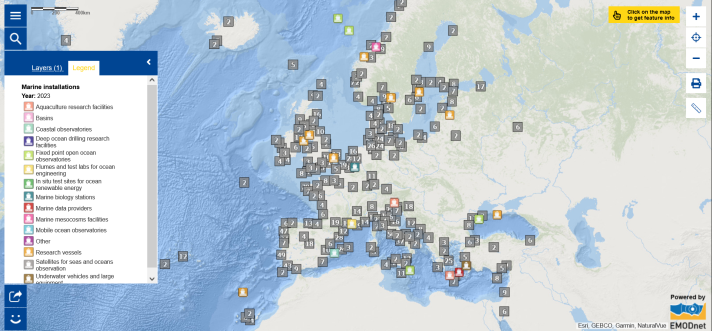Are you at the seaside this summer? Whether this is the case or not, take the opportunity of summertime to learn more about the ocean and marine research! Better yet, contribute to research as a citizen scientist!
To learn about ocean science and ensure that you are informed about latest developments, make sure that you read about the United Nations Decade of Ocean Science for Sustainable Development (2021-2030), also referred to as the Ocean Decade. Launched in January 2021, the Ocean Decade provides a convening framework for a wide range of stakeholders across the world to engage and collaborate outside their traditional communities to trigger nothing less than a revolution in ocean science. Throughout the Ocean Decade, partners will generate the data, information and knowledge needed for more robust science-informed policies and stronger science-policy interfaces at global, regional, national and even local levels. By collectively aligning research, investments and initiatives around a set of common challenges, the Ocean Decade community will contribute to a well-functioning, productive, resilient, sustainable and inspiring ocean. Ocean Decade Actions are the tangible initiatives carried out across the globe over the course of the Decade to achieve “the science we need for the ocean we want”. Actions contribute to fulfilling the 10 Ocean Decade Challenges, which articulate the most immediate priorities for the Ocean Decade: [1]
- Understand and beat marine pollution
- Protect and restore ecosystems and biodiversity
- Sustainably feed the global population
- Develop a sustainable and equitable ocean economy
- Unlock ocean-based solutions to climate change
- Increase community resilience to ocean hazards
- Expand the global ocean observing system
- Create a digital representation of the ocean
- Skills, knowledge and technology for all
- Change humanity’s relationship with the ocean
Looking for information on marine research in Europe? Have you seen the map layer on marine installations in the European Atlas of the Seas? Europe has an extensive network of marine research infrastructure which incorporates a wide range of facilities including research vessels and embarkable equipment, on-land and offshore research and test facilities in the physical, biological and chemical domain as well as numerous remote and in-situ observation facilities. Explore the Map of the Week to discover them and click on the map to see the key characteristics for each facility, including links and contacts in order to access further details provided by the operators of these facilities. As there are many marine installations across Europe, they are grouped in the map at European scale. Make sure you zoom in to view specific regions of your interest and see all the marine installations there! Click on the links to access the dedicated websites to read news about current research and watch videos where available!
The map shows the different marine research facilities based on the Marine Research Infrastructures database from EurOcean. EurOcean is an independent, non-profit, scientific organisation with the mission to support advances in European marine science and technology, by fostering information exchange, interaction and innovation among its network members, the ocean community and broader society.
Wish to learn more about the ocean and marine research? Wish to get involved?
- Check the Ocean Decade website for recent news and further information about Ocean Decade Actions;
- Dive into UNESCO’s Ocean Literacy Portal to find Ocean Literacy training courses and information on Ocean Literacy events;
- Have a look at the 2024 UNESCO State of the Ocean Report;
- Dive into EurOcean’s Marine Knowledge Gate to find the most comprehensive information repository on Europe’s marine and maritime research projects and their key tangible outputs;
- Learn about citizen science with the European Citizen science Association (ECSA);
- Contribute to research on phytoplankton blooms carried out by the French national institute for ocean science and technology (IFREMER) by sharing your observation in the framework of the phenomer programme (in French) with the dedicated app.
The data in this map are provided by EurOcean.
[1] https://oceandecade.org/who-we-are/

